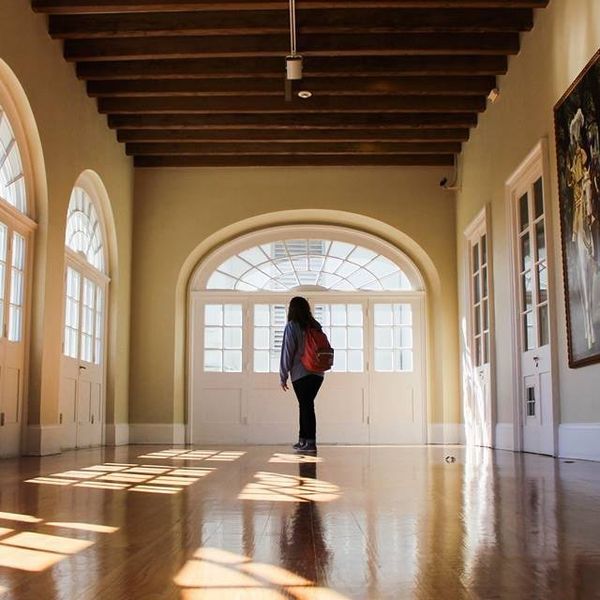How is following Jesus supposed to change our lives? Is it a temporary devotion to certain principles when in the public eye? Is our life with Jesus meant solely as a method of guilt and stress relief? Certainly not. Is following Jesus more of a cultural identity than a lived-out reality? Unfortunately, this often can seem to be the reality of Christianity when we might look around at our fellow Christian brothers and sisters. Why is this?
Personally, I have faced cultural pressure to adopt a 'culture-ized' form of Christianity which becomes more about proving my Christian worth by volunteerism and superficial kindness. Very little importance is put on the inner life in this cultural Christianity. It becomes more important to modify one’s behavior in the right ways in accordance with the prevailing cultural thoughts of the moment than to internally be shaped by the love and guidance of Jesus. How are we supposed to act in a world which is increasingly focused on the visible signs of growth and progress when most of these signs our internal and invisible to the outside. The external manifestations of our growth should be overflow, not primary growth. It is incredibly tempting to give into this mindset and abandon the internal life. This type of behavioral modification seeks to make God’s grace irrelevant to our daily lives. God’s grace becomes a nice trinket rather than our most prized possession when we slip into this mindset. Cheap behavioral modification will never be enough for our own personal growth or our life with God.
Behavior modification will never be enough. In the Sermon on the Mount, Jesus brings this fact up. From his very first words in Matthew 5, Jesus is concerned with the people’s hearts and internal states, not their outward devotion. The poor in spirit, pure of heart, merciful, and those who hunger and thirst for righteousness are counted blessed, not for behavioral modification, but because of the internal state of their souls. Jesus continues to make his point clear. “If you are offering your gift at the altar and there remember that your brother or sister has something against you, leave your gift there…first go and be reconciled to them” (NIV, Matthew 5.23-24). A repentant heart is far more important than religious piety to Jesus. This is good news for those who might not fit the stereotypical mold of a good Christian girl/boy, but what does this mean for those of us who do?
This should convict those of us who find ourselves slipping into a mindset more focused on behavioral modification than on genuine heart growth. When we in the Church attend services and enter prayer, we might find ourselves subtly compartmentalizing without realizing it. Personally, I have found myself shifting into a distinctly mystic ethereal mode when I enter musical worship or prayer, during these services. Throughout the week, I would daily find myself reflecting or thinking on my relationship with God, but somehow was not the same person who was in service. I entered these services as my ‘church-self’ and would live throughout the week as my ‘real-self’. I have had to make a conscious effort of reminding myself when in service to be the ‘real-me’ and not try to put up any façade or front. This revelation is an intensely personal one, which I can’t illicit in any reader, but I would encourage you to reflect on matching your beliefs with your daily living.
I think there can be a tendency to view church as a place for spiritually mystic and mysterious experiences rather than as a place of community where we are enabled to grow and more readily experience the love of God in daily living. The church should not be the only place where we are spiritually fed. It should be a place where we can freely learn, teach, and grow in knowledge of God. We are called to an immensely practical life. Jesus ministry was extremely practical. He met the immediate needs both spiritually and physically of those around himself. Mystic Christianity helps no-one. It merely re-enforces the natural tendency of our culture to compartmentalize. This type of mysticism causes the church to become a place where people seek cultural identity and spiritual experience more than they seek God. An easy way to check our own intentions is to ask ourselves what God has been saying to us and where we have seen God in the past week outside of the church. Where have we? If we only see or hear from God inside the church, then we have blinders on. God is everywhere trying his utmost to get us to listen. I have had to stop and examine my own heart posture many times throughout my Christian walk. This is the Christian way. To be vulnerable enough to admit weakness and courageous enough to try again.





















